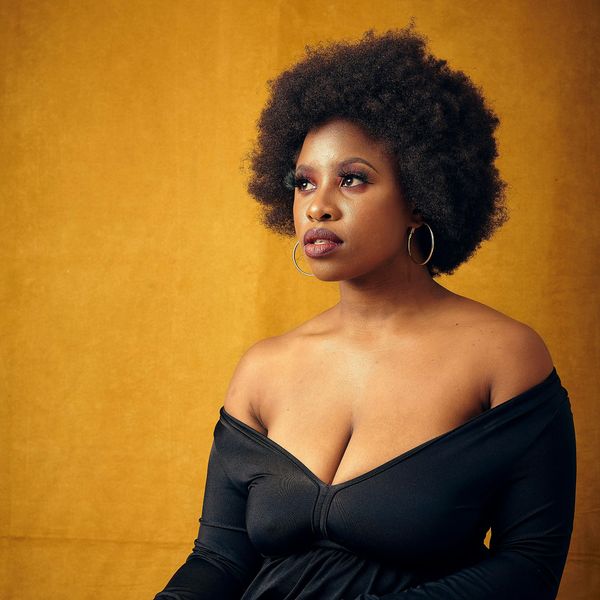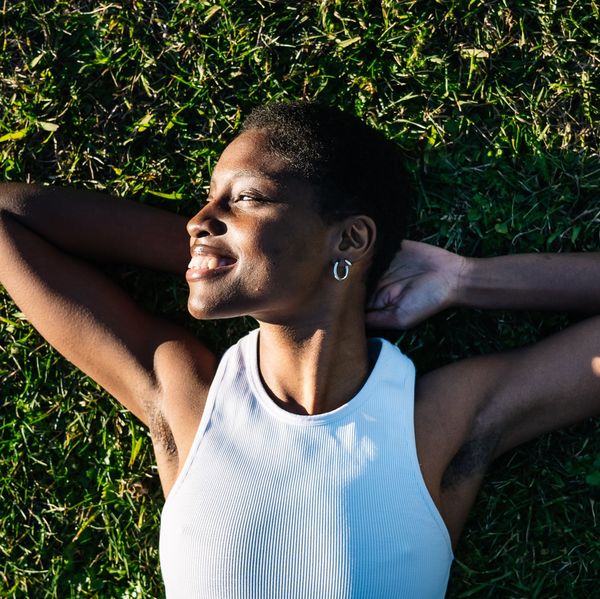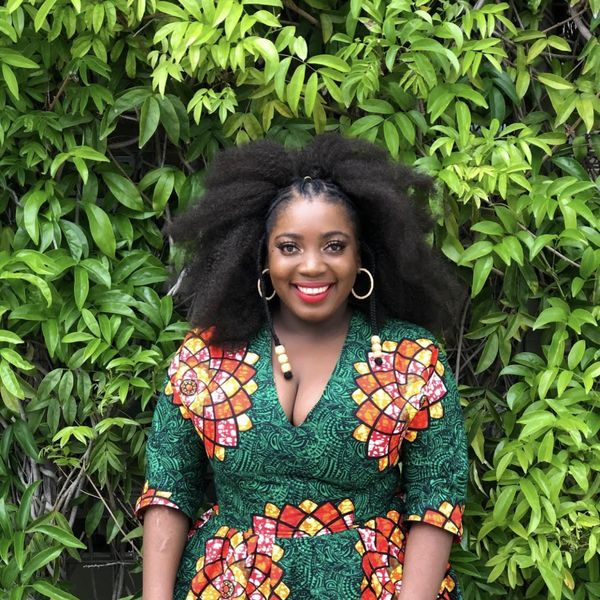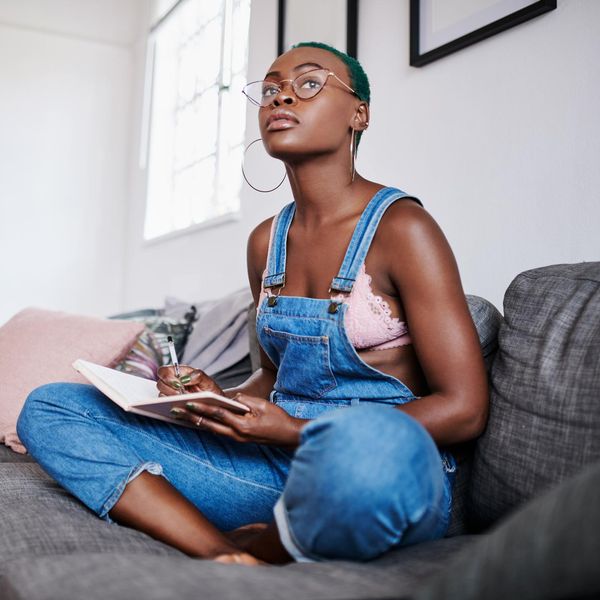
It wasn't until I actually sat down to pen this piece that I discovered that "creative" (when it's a noun, not an adjective) was as controversial of a word as it is. If you surf around cyberspace, you'll see articles like "Are You Creative or Are You an Artist? (You Might Be Neither)" and the quick read "Who Is a Creative?" But I think it's a few lines in the piece, "What Is a Creative?" that I personally resonate with most. According to it, a creative is an artist, an individual and a thought leader; not one or another—all three.
Adding to that, a true creative is someone who doesn't copy or bite off of others. A true creative doesn't disrespect or dishonor someone's intellectual property. What a true creative does do is tap into their imagination to come up with original ideas. What a creative does do is come up with concepts that are nothing short of original, visionary and inspired. A creative doesn't follow paths; they blaze trails. A creative is someone who not everyone "gets" or even always (initially) supports. The creative doesn't care; they keep on creating anyway. It's the creative's habits and lifestyle that help them to keep on creating.
If you consider yourself to be a creative, first, I salute you. There aren't too many things more amazing' than you. I also think that you'll totally resonate with all of the habits that I'm about to share because, there's a high probability that they are a part of your regular routine (as they are mine).
10 Habits Of Highly Creative People
Creatives Spend Time with the Master Creator

Something that I find to be cool about how God is described in the Bible is, His first introduction is as a creator—"In the beginning, God created the heavens and the earth." (Genesis 1:1) Then, a few passages up, Scripture tells us that He declared, "Let us make man in Our image, according to Our likeness." (Genesis 1:26) To me, it's a reminder that I was made, by the Master Creator, to reflect His image by being creative too. In many ways, creating is a form of prayer, meditation and worship.
So yeah, it is my personal opinion that while creatives may be, well, creative in how they accomplish this first point, in some way, they are intentional about "tapping into" their Creator—whether it's before, during or after (if not all three), they are creating something.
Creatives Think WAY Outside of the Box
Wanna know if something is truly creative? It will be new, fresh and—one of my favorite definitions of original—"arising or proceeding independently of anything else". In order for something to be that, it's got to appear a little strange, maybe even crazy, at first. Creatives don't mind because they know that's what comes with the territory. It's not about if it makes sense to others or can be compared to something else. In fact, if it does, usually to a creative, that means they aren't doing something right.
To a creative, when they are creating something and someone says, "Yeah, I don't get it", that is high praise. It's a confirmation that they aren't working within a box but outside of it, which is just what they wanted to do all along.
Creatives Avoid Negative Things and People
 Giphy
GiphyBack to spirituality for just a second, according to the Bible, the first thing that God made is light. Light is pure. Light illuminates. Light is a form of guidance. Creatives like to get into and stay in the light. In this sense, what I'm speaking of is positivity. Anything that will take them out of a "light space", they will avoid it like the plague because it is negative and negativity is dark and draining.
I recently read an article from a psychotherapist about just how much negativity alters our brains. Instantly, I thought about someone I know who is a creative. Whenever complaining or gossip comes up in a conversation, they immediately excuse themselves. I've seen people get offended by how abrupt they are, but I get it. They'd rather protect their creativity and energy than not appear rude.
That's something else about creatives—they are very loyal, intensely so, to their creative space, both internally and externally. The more light (positivity), the better.
Creatives Listen to (Different Genres of) Music
There are a lot of artists and musicians in my space. When it comes to about half of them, if someone were to ask me what kind of music that they did, I'd categorize it as being "genre-less". That's because you can tell that they are fans of Biggie and Sade and James Taylor and Mozart and Dolly Parton and The Clark Sisters and Duran Duran and all of 90s R&B and Lizzo and Insecure's soundtracks—all kinds of music inspire them.
Same goes for creatives, at large. It's not uncommon for them to create with the most random playlist you've ever heard before (or complete silence). As far as the music goes, that makes sense because scientifically, music makes us happier, reduces stress and improves our learning and memory.
If you are a creative who always has a set of headphones on, I will give you a heads up on an article that I checked out on this very topic. Apparently, if you want to make the most out of your creative time, avoid rock music, only listen to classical if you really dig it and reserve new tunes for when you're relaxing as opposed to when you are creating. (Feel free to hit up the comments section to let me know if this is true for you or not.)
Creatives Unapologetically Require “Me Time”

Only a creative will really appreciate what I am about to say. When we're doing something that is the epitome of being a creative entity, it not only benefits us; it blesses others too. Because this is the reality of creating, this means that our energy is constantly being used with other individuals in mind. That's why creatives have absolutely no problem with falling off of the grid from time to time. In order to remain balanced, focused and secure with oneself, there has to be moments when we get alone in order to hear our own thoughts, cater to our own needs and not hear other people's opinions.
It could come in the form of journaling, binge-watching a show all week long or taking a weekend trip to a B&B. But you can best believe that we're gonna shut the world out sometimes, and it's gonna be fairly often, and we're not gonna apologize for it.
Creatives Make Having Fun and Pleasure a Top Priority
Every year, I make it a point to have a theme word—and an anchor text—for my birthday. My peeps are used to that and so, when they asked me what it was gonna be for 45, I knew right away—pleasure. Some of them gave me a sheepish grin but it's whatever. And yes, I have a Scripture to back it up. Two, in fact. The New King James Version of Psalm 16:11 says, "You will show me the path of life; in Your presence is fullness of joy; at Your right hand are pleasures forevermore" and the Message Version of Ecclesiastes 9:7-8 has a line in it that says, "God takes pleasure in your pleasure!"
What both of these verses remind me is there has to be room for doing what I enjoy, what makes me laugh, what is pure unadulterated fun.
A lot of creatives remain in a constant state of what I call "purpose fatigue" because they act like it's some sort of crime to get off of the clock and do something for the sheer delight of doing it. But seasoned creatives know that if they don't, they will burn out, possibly get sick and end up miserable. Yep, fun and pleasure are constants for creatives. As often as possible too.
Creatives Unplug and Hang Out with Nature

Wanna know one reason why it's a good idea to put your smartphone down more often? It competes with your creativity. Think about it. Pretty much everything that we take in online is the manifestation of someone else's ideas. And while sometimes that can be inspiring, other times, it's nothing more than a colossal waste of time. True creatives know this; that's why there are moments—days even—when they may be unreachable or they'd much rather take a hike than watch a movie. They need to unplug for a bit.
This point reminds me of the classic read The Celestine Prophecy. It spends a significant amount of time talking about how nature teaches us things and recharges us. If you're currently having a creative block, get out of your phone and go outside into the fresh air and sunlight for a bit. Out of all of the things that have already been created, just looking at nature can remind you just how beautiful true creations actually are.
Creatives Make Some Pretty “Strange” Sacrifices
The textbook definition of a sacrifice is to give up something great for something better. I'm not sure if anyone does this better than a true creative. They might let go of a relationship in order to get an idea off of the ground. They might move in with a friend so that they can put their rent money towards a bomb business concept. Although they may traditionally be the life of the party, you might not see them for half a year while they try and turn their art into something that will pay their bills.
To the outside world, going for months eating not much more than quinoa and beans or selling your car so that you don't have to take out a loan may appear cr-a-zy. But not to a creative. To them, the sacrifices that they make now speaks to how much they believe that their dream(s) will manifest—and payoff—later.
Creatives Keep Their Circle Super Tight
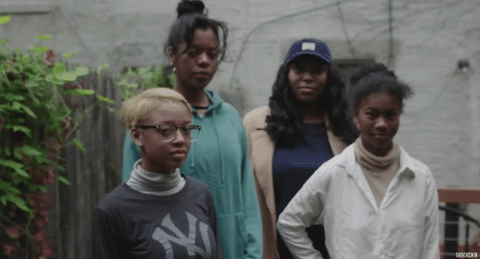
Oh, how I wish I could give the person who said this their just due! I just can't remember where I stored the quote. Anyway, it was from a guy who posted on one of his social media accounts that we should be careful who we share our ideas with because they will first try and make us feel insecure about them and then turn around and attempt to do them instead. Pearls. Of. Wisdom.
The funny thing about creatives is, oftentimes a lot of people know who they are without truly knowing them (because someone can't "know you" unless you agree that they do). Because creatives are full of concepts and ideas, they have to be very careful who they open themselves up to. This means that their circle is usually very small because, while they are (hopefully) polite to all, they are intimate with only a few.
It might come off as standoffish at times, but it's not meant to be. Creatives just have to protect their head, heart and inspired space. It will be very difficult for them to create if they don't.
Creatives Take Lots of Risks
And finally, creatives are risk-takers. BIG TIME. However, a wise creative knows that there are such things as good risks and bad risks. What's the difference? I once read a writer compare investing money in the stock market to playing at a casino. Because putting money into stocks typically requires research, you're able to understand the probability of making your money back. It's a risk, but it's a calculated one, making it (usually) a good risk. On the other hand, taking your rent money to casino and playing random games, hoping that you'll be the Black version of Woody Harrelson and Demi Moore in the movie Indecent Proposal (before Robert Redford's character jacked it all up) is basically like playing roulette with your cash, ultimately, making it a bad risk.
Creatives know they have something special. What they also know is a lot of people are hoping that they don't see just how special their ideas and talents are. So, while they do make it a practice to take on ventures, pretty much on a regular basis, they don't do so without doing research, weighing out the pros and cons or without allowing their gut instinct to play a role. They're risky but they aren't super hasty. They know that what's right for them won't pass them by; that the best opportunities will be totally worth the risk and will only take their creativity—and themselves—to new heights. Habitually so.
Featured image by Getty Images
Want more stories like this? Sign up for our newsletter here and check out the related reads below:
5 Things Creatives Need To Get Ish Done!
Tour Multifaceted Creative McKenzie Renae's Dope ATL Abode
5 Surefire Ways To Tap Into Your Creative Self, According To An Expert
How Melissa Kimble Spun A Hashtag Into An Invaluable Platform For Black Creatives
- 4 Lifestyle Habits Of Successful People - xoNecole ›
- 10 Small Habits That Can Make A Really Big Difference - xoNecole ›
- Seven Habits of Highly Creative People ›
- 12 Habits of Successful Creatives - Lavendaire ›
- 4 Daily Habits For Creatives To Stay Inspired At All Times ›
- The 7 Habits Of Highly Creative People – ART + marketing ›
- 15 Habits You Need to Unlock Creativity (+7 Habits to Forget) | JUST ... ›
- Some Amazing Habits of Insanely Creative People – The Ascent ›
- The 5 Simple Habits of Highly Creative People | Inc.com ›
- Ten Habits of Highly Creative People ›
- 18 Habits Of Highly Creative People | HuffPost ›
- 18 Unusual Habits of Creative People That Will Spark Your Creative ... ›
Your December 2025 Monthly Horoscopes Are All About Surrender & Alignment
December is about letting go. We end the year with the need for more peace, reflection, and rejuvenation, and that is exactly what December is providing for us. The Sun is in Sagittarius, and anything is possible. This is the month to believe in that and to know that the universe is supporting you. With a Supermoon in Gemini as we begin the month as well, we have an opportunity to gain the closure we have been looking for this year and to wrap up old projects, ideas, and communication breakthroughs.
This is the month to make your peace the priority and let go of trying to control the way the tides are turning. Trust in your new beginning, and give yourself time to prepare for it this month.
A big part of the clarity that is coming through this month is due to Neptune going direct in Pisces on December 10, after being retrograde here since July. With Neptune now direct, we are able to see our inspiration and creativity a little more clearly, providing the perfect energy for dreams and manifestation to be built upon. The smoke is clearing, and it’s up to you to decide what you want to do with this newfound clarity that this transit is bringing. Mercury also moves back into Sagittarius on December 11, which is great for communication and clarity, and the adventures you were trying to see through at the beginning of November come around for you again with greater purpose and support.
On December 15, Mars enters Capricorn until the end of January 2026, and this is the extra push we need to make important changes and to be on the path towards greater abundance, stability, and prosperity. Mars in Capricorn takes care of business, and we have extra energy at our disposal during this time to do so. This transit is an ideal time to focus on your career or financial goals for next year and to start putting some of these plans into motion now. A few days later, we have the New Moon of the month, which will be in Sagittarius on December 19, and this is the perfect New Moon to manifest.
The energy is high, magic is in the air, and it’s all about moving forward with the new beginnings that are inspiring you and bringing you joy to think about right now.
Capricorn Season officially begins on December 21, and this earth sign energy is how we heal, gain closure, and build new foundations in our world. With Venus also moving into a Capricorn a few days later, there is something about peace, prosperity, and security that we are gaining in life and in love as we close out the year, and this is what we need right now. This month is about reflecting on what was, letting go of old hurt, and renewing. December is an ending and a new beginning in one, and there is magic in this space to be created.
Read for your sun and rising sign below to see what December 2025 has in store for you.
 AriesKyra Jay for xoNecole
AriesKyra Jay for xoNecoleARIES
December is a full-circle moment for you, Aries. You are seeing the gifts in your world and have a lot of gratitude for the way things have come about for you as of late. There are culminations in your world that are providing you with more abundance, stability, and community, and you are exactly where you are meant to be this month. With the Sun in a fellow fire sign and in your 9th house of travel for most of the month, December is a good time to get out of your comfort zone, explore the world around you, and get your body moving.
Mars, your ruling planet, also makes a change and moves into Capricorn on December 15, which will fuel your inspiration and power in your career space. You are making a lot of professional progress as we close out the year; however, make sure to be more mindful of your competitive drive right now. The New Moon on December 19 is the perfect opportunity for you to create some new plans and goals when it comes to traveling, education, and where you want to gain some new inspiration in your world. Overall, this is a month of things coming together for you serendipitously.
 TaurusKyra Jay for xoNecole
TaurusKyra Jay for xoNecoleTAURUS
December is about trusting your intuition, Taurus. You have a lot on your mind this month, and it’s best to delegate, communicate, and allow yourself some relief by opening up to someone and not feeling like you have to hold everything in. As we begin the month, we have a Supermoon in Gemini happening in your house of income, and the plans and projects you have been building here come to fruition for you now. This is the time to gain clarity on your financial world and to take a look at what spending habits you want to let go of here as well.
With Venus in your 8th house of shared resources for most of the month, you are doing a cleanse on your commitments, partnerships, and business ventures. You are taking a look at what you want to dedicate yourself to in the future, and what commitments you may need to let go of now in order to be in the space you truly want to be, both financially and within some of your relationship dynamics. Before we end the month, we have a New Moon in this same area of your chart, and it’s time to look at the opportunities that are presenting themselves and to trust your internal guidance system to lead you forward.
 GeminiKyra Jay for xoNecole
GeminiKyra Jay for xoNecoleGEMINI
You are moving forward fearlessly this month, Gemini. December is your month of love, passion, and dignity, and you are owning the light that you shine. We begin the month with the last Supermoon of the year, happening in your sign, and you are stepping up to the plate. You are showing up, owning how much you have grown this year, and allowing yourself to heal while also acknowledging that you have done your best and you deserve to have fun in the midst of the changes you are creating.
Mercury, your ruling planet, is officially out of retrograde, and you can use this energy to the fullest potential now. With Mercury in your 7th house of love, it’s time to speak from the heart and to talk about the things that matter and that are inspiring you right now to your loved ones. You never know what kind of epiphanies you may have when you open up the conversation to others. Before the month ends, you have a New Moon in this same love area of your chart, and this New Moon is all about manifesting romance, commitment, and abundance in your world.
 CancerKyra Jay for xoNecole
CancerKyra Jay for xoNecoleCANCER
December is an opening for more love, more joy, and more freedom in your life, Cancer. You have come to a place where you hold so much gratitude in your heart for where you are today and where your heart is shining, and things come together for you with more ease right now. With the Sun in your 6th house of health, work, and daily routines for most of the month, you are getting your ducks in a row while also putting more energy and effort into taking care of yourself, your priorities, and your well-being. This month surprises you in many ways, and it’s because you are showing up.
Mars and Venus both move into your house of love, relationships, marriage, and abundance this month, and you are making strides in your love life. You have both of these opposing forces on your side and are being recognized for the love you are while also receiving the love you want. This month, overall, is about focusing more on the positives in your world and letting your heart have its joy. Before December comes to an end, there is a New Moon in Sagittarius, and this is the perfect opportunity to create the plans you want to see through next year, especially when it comes to your work life, colleagues, business ventures, and health.
 LeoKyra Jay for xoNecole
LeoKyra Jay for xoNecoleLEO
The scales of karma are balancing, and they are balancing in your favor this month, Leo. December is your month of truth, and of seeing it clearly in your world. The Sun is in your house of romance, pleasure, and happiness for most of the month, and it’s time to relax, be in the present moment, and allow what is meant to be, to be. With a Supermoon in your 11th house of manifestation as December begins, this is a powerful month for seeing your dreams come to fruition, and for feeling like the intentions you have set this year are finally here for you now.
Mars also moves into your 6th house mid-month, and this is the perfect energy to have to move into the new year. You have extra energy at your disposal right now and are feeling fearless with what is possible for you and your daily routine. Before the month ends, we also have a New Moon in a fellow fire sign, Sagittarius, and this is a breakthrough moment for you and your heart. December, overall, wants to show you how loved and supported you are and will be doing so in magical, unexpected, and concrete ways.
 VirgoKyra Jay for xoNecole
VirgoKyra Jay for xoNecoleVIRGO
December is a month of victory, Virgo. You are showing up and experiencing some new successes in your world that move you forward on your path in life. With a Supermoon in your 10th house of career as we begin the month, the effort and intentions you have made this year come into full bloom, and you are being recognized for who you are and the good work you have done. This month is all about showing up and allowing yourself to be seen and loved, knowing that you deserve the support and opportunities you are receiving.
Mars moves into Capricorn on December 15, which brings the passion and excitement into your love life, hobbies, and little pleasures in life that light you up. You want to have fun this month and are going to be walking into the new year with this fearless, happy, and spontaneous energy within you. Before the month ends, Venus also enters Capricorn, and in this same area of your chart, you have a lot to look forward to and believe in right now. Overall, December wants you to be happy and will be doing everything possible to make that happen for you. This is your month to shine, Virgo.
 LibraKyra Jay for xoNecole
LibraKyra Jay for xoNecoleLIBRA
December is a month of opportunity for you, Libra. New doors open, and you are financially making breakthroughs this month because of it. December begins with a Supermoon in your 9th house, and you are getting a clearer view of where you have been making strides in your life and how it has all brought you here to this present moment of freedom. This month is showing you what happens when you are fearless with your purpose and when you believe in yourself and what you are worthy of.
Moving further into December, Mars moves into your 4th house of home and family mid-month, and you are closing out the year in your safe spaces. You are spending more time with your loved ones and taking the time to quiet your mind and listen to what your heart has been telling you. Before the month ends, we have a New Moon in Sagittarius, happening in an area of your life that deals with communication. This is a great time for getting the answers you have been looking for and for feeling more clear-headed and confident about the decisions you are making as you move into the new year.
 ScorpioKyra Jay for xoNecole
ScorpioKyra Jay for xoNecoleSCORPIO
Patience is a virtue this month, Scorpio. December is all about remaining patient and vigilant with what you are creating in your world, and knowing that the universe has your back. It’s time to be reminded of the power of hope, and this month is an opening to greater clarity in your life. There is a lot of energy in your financial zones right now, and this is providing you with new opportunities and new insight; however, the speed at which things come about for you may feel daunting. Keep your head up and eyes focused on what you want and know that you are more than worthy of receiving it.
With Mercury in your 2nd house of income this month, December is a good time to plant new seeds and to think about where you want to be financially a month from now or even a year. This month is asking you to think bigger and to think more long-term so that you can set the appropriate plans into motion now. We also have a New Moon in your house of income before the month ends, and this is when you will see more of your dreams come to fruition in this area of your life, and have more opportunities to build. Overall, December will be teaching you a lot, Scorpio.
 SagittariusKyra Jay for xoNecole
SagittariusKyra Jay for xoNecoleSAGITTARIUS
Sagittarius Season is here, and there is a lot in store for you this month, Sag. December is all about what you are dedicating yourself to. It’s about setting your intentions and putting the work in to back up your dreams, and about getting things in order so that when the new beginnings come, you are ready for them. The Sun and Venus are in your sign for most of this month, and there are a lot of eyes on you right now. You have the potential to create a new beginning for yourself, and it’s time to invest in yourself, your love life, and your dreams.
Mercury moves into Sagittarius on December 11, and this is giving you another opportunity to see through some of the plans that you had initiated in November. Mercury was retrograde in your sign last month, and there may have been some disruptions to your vision and plans for the future, and now this energy is turning around for you. Before the month ends, we also have a New Moon in Sagittarius, and you are walking through new doors fearlessly. You are catching others by surprise by your growth this month, and you are thinking a lot about your purpose, future, and plans for the new year.
 CapricornKyra Jay for xoNecole
CapricornKyra Jay for xoNecoleCAPRICORN
December is all about the vision, Capricorn. You are moving through a lot of changes and transformations this month, yet they are giving you a chance at a new beginning in the process. You are focused more on the future and what goals you want to manifest for yourself right now, and are ready to let go of what hasn’t been working for you. With the Sun in your 12th house of closure for most of December, this is your time for healing, but remember, healing doesn’t have to be isolating or boring; you can thrive while you renew, and you are this month.
Mid-month, the excitement picks up for you, and you are feeling more energized than you have in a while. Mars moves into Capricorn until the end of January 2026, and you are being proactive with your goals, intentions, and passions. You are a force to be reckoned with this month, and you are making things happen for yourself with confidence. Capricorn Season officially begins on December 21 this year, and this is definitely speeding up your healing process. You are breaking free from what was, and with Venus also moving into Capricorn before the month ends, you are leaving this year in high spirits and with love opening a new door for you.
 AquariusKyra Jay for xoNecole
AquariusKyra Jay for xoNecoleAQUARIUS
December is all about community, creativity, and manifestation, Aquarius. This is the month to work together with others to help bring your dreams to life. You are in a space of inspiration, empowerment, and beauty, and are creating more of this energy around you and in your world. Look out for what support comes your way this month and know that you don’t have to do everything alone to succeed. With the Sun in your 11th house of manifestation and friendship, your intentions are coming to fruition, and it’s time to celebrate with the people you love and to own how far you have come this year.
On December 19, we have a New Moon in Sagittarius, lighting up your life in all of the best ways possible. This is your New Moon of freedom, victory, and magic, and you are seeing new beginnings appear that you were once just hoping for. Before the month comes to an end, Venus moves into your 12th house of closure, and after an active and successful month, you are ready to relax, heal, and give your heart some of the attention it has been asking for. You are moving into the new year with the need to release and renew what hasn’t been working in your relationships, and you are finally ready to.
 PiscesKyra Jay for xoNecole
PiscesKyra Jay for xoNecolePISCES
December is a big month for you, Pisces. You are making some huge accomplishments this month, and are feeling like everything you have been through this year has been worth it for these moments that are coming to fruition for you now. The Sun is in your 10th house of career and reputation for most of the month, and this is where a lot of your focus is right now. You are claiming your successes and putting yourself out there in ways that not only serve you, but that inspire others as well.
Neptune officially goes direct on December 10, after being retrograde in your sign since July, and you are finally seeing things a little more clearly. You are feeling renewed inspiration and passion in your life, and your intuition is your strongest asset right now. Before December comes to an end, we also have a New Moon in your 10th house of career, and what happens now not only changes things for you in the present, but it also opens new doors and what is possible for you in the new year as well. Overall, you are on top of your game this month and are owning the joy and empowerment you feel.
Featured image by Kyra Jay for xoNecole
Why The Cayman Islands Is The Ideal Soft-Life Island-Hopping Destination
It's always a pleasure to add a new stamp to the passport, especially when it's an opportunity to visit a country you've never been to. When invited to explore the Cayman Islands, I was very familiar with Grand Cayman—the largest among the three islands, known for its stunning clear-blue beaches, and modern city comforts—but I seriously slept on Cayman Brac.
On a six-day trip, I knew Grand Cayman would be that girl, but the smaller sister island Cayman Brac? She’s the captivating, low-key spot that is a whole soft-life fantasy.
This trip was my first time in the destination, via the Cayman Islands Department of Tourism (@visitcaymanislands) and it had all the luxe chill and exploration that makes for great memories that will prompt anybody to want to return again and again. Plus, it was the tail end of rainy season, which is basically my jam because off-peak travel makes me feel like a VIP. I get the beauty, the beaches, the food, the people—without the crowds and noise.
Let’s get into how you can pack your Cayman Islands itinerary with cultural exploration, elevated cuisine, deep restoration, and an island-hopping adventure along the way.
GRAND CAYMAN
Grand Cayman hits you with that effortless island confidence from the moment you land. It’s the largest of the Cayman Islands, known for crystal-clear Caribbean waters and a culture that blends British influence with laid-back island charm.
Visitors pull up for Seven Mile Beach, stingray encounters, fresh seafood, and those luxe resorts and villas that make unplugging way too easy.
Where To Stay

Courtesy/Grand Cayman Marriott Resort
Grand Cayman Marriott Resort: This property offers ocean views, polished comfort, with easy access to everything near Seven Mile Beach. (Marriott stays are often a go-to for me when I’m in the mood for a resort stay where the standards are consistent no matter the destination).
The spacious rooms, warm staff, and a pool area perfect for quick resets between adventures were a hit for me. Despite the patchy rain, lounging by the pool felt like a reset button.
I popped into the gift shop and found pieces from Isy B, the Cayman-based brand created by Isy Obi, a Black woman who pivoted from finance to fashion. The designs are bold, colorful, full of vibes I love to reference when returning home.
Botanica Luxury Cottages: The cluster boutique cottages blend island-chic décor with modern touches. My cabin had vaulted ceilings, washer and dryer, roomy showers, a cozy lounge area, and a private outdoor nook with stylish umbrellas and seating perfect for reading, sunbathing, or unwinding. A pool is just a short walk away on the property and Seven Mile Beach was just a quick drive. I took a two-mile stroll along the shoreline where families, chilled-out tourists, and sleek beach clubs lended to a balanced and laid-back but lively environment.
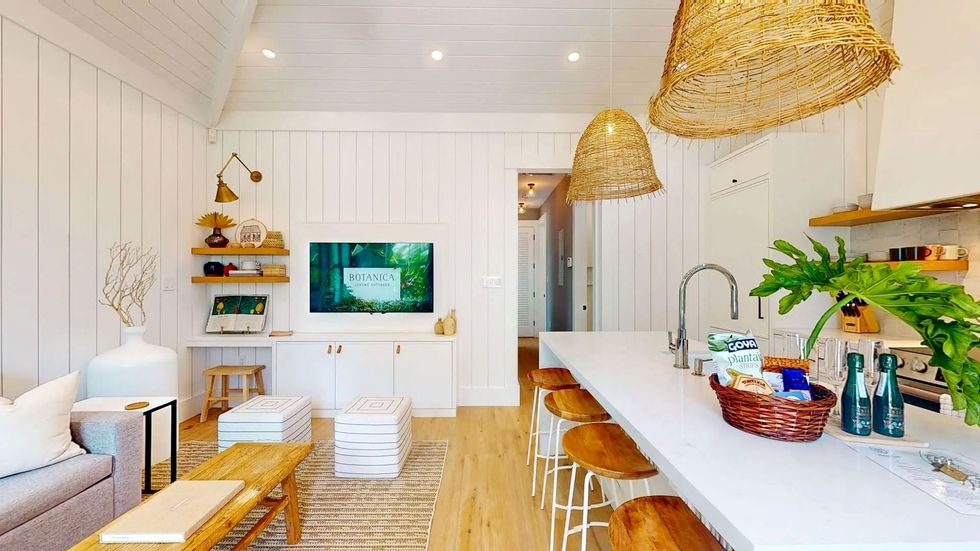
Courtesy/Botanica Luxury Cottages
Where To Eat
Pom Pom: This breezy rooftop lounge serving curated cocktails with a relaxed, stylish vibe and mellow music was the perfect evening welcome to the island. And the sunsets are divine.
Avecita Chef’s Table: It’s an amazing multi-course dining experience where chefs craft global flavor fusions right in front of you. Expect bubbles, bold tastes, and an ambiance that feels refined without being pretentious. This is one experience I definitely plan to fly back to Cayman for in the new year.
Pepper’s Bar & Grill: Conveniently located just across the street from the resort, it’s a local casual spot with live music and unique takes on Caribbean meal staples. The Cayman-style jerk pork was a favorite.
Ristorante Pappagallo: Set on a 14-acre bird sanctuary overlooking a saltwater lagoon, this brunch delivered everything from sushi to risotto to curry goat to barbacoa tacos. The white tablecloth elegance paired with homestyle warmth and peaceful water views made the whole experience feel elevated yet comforting.Bacaro
Bacaro: This is where we had our farewell dinner, enjoying their Venetian-inspired small plates and curated cocktails. If you want a final night with your partner or even your best girl group, this is the spot.
Things To Do:

Courtesy/Island Soul
Floating Sound Bath with Island Soul: The floating meditation was calming, grounding, and deeply restorative. We had the sky and breeze as a backdrop and listened to music, prompts and chimes that allowed us to simply float and be.
Anchor & Den Cocktail Class at the Grand Cayman Marriott Resort: I thoroughly enjoyed this lively, hands-on cocktail-making session which would be fun for couples, friends, or anyone wanting a playful evening activity without leaving the property.
The Grove: This is a foodie and art-lover's delight with its dining and culture scene that features spots like Island Naturals, a chill café with plant-forward dishes—where the mushroom tacos were everything, and the tuna poke nachos are a must—and upscale spots like Mykonos Steak Club. After eating, stop by Carlos Garcia’s gallery, a working studio and public exhibition space that supports a collective of local and international artists, and regularly hosts events, pop-ups, and live painting.
Pirates Week Festival: This was a welcome surprise addition to our itinerary, and it's an event held in November across the Cayman Islands, with the major events happening in the heart of Grand Cayman's George Town. During the finale, I was out there jumping and whining to Nessa Preppy and Faith Callender, rum in hand, surrounded by locals and pure island joy. As a woman who loves soca, that moment lit me up. It was the perfect last hurrah with a slice of home, culture, and celebration.
Bonny Moon Beach Club: It’s a Tik Tok-famous stylish beachfront lounge experience that, for me, actually matched the good reviews. The octopus ceviche and everything from the woodfired portion of the menu were a hit and the DJ added the right amount of energy. We ate just steps from the ocean. It's swanky, atmospheric, and ideal for date night, girls’ trips, or baecations.
CAYMAN BRAC
Known for dramatic limestone cliffs, caves, and some of the best diving in the Caribbean, the vibe in Cayman Brac is slower, more local, and perfect if you want nature, real island culture, and adventure without the crowds. I took a quick Cayman Airways flight from Grand Cayman and spent two days there.
The visit was honestly one of the most peaceful, soul-nourishing parts of my trip. The moment I landed, the island reeled me in—raw, mysterious, almost cinematic in its quiet beauty. There’s a softness that feels like an alluring secret.
Where to Stay

Courtesy/Le Soleil d'Or
Le Soleil d’Or: This is a farm-focused boutique haven with luxury villas, a restaurant, a pool, and its own beach club. Our villa was huge, complete with a kitchen, living room, laundry space, game room, and the modern luxury master suite of my dreams.
The bathroom had a soaking tub that fit my 5’7"-plus frame, a large shower, and his-and-her sinks. The bedroom had tons of storage, a large comfy bed, and a mini fridge, plus a TV lounge and veranda opening to the pool. Honestly, my suite could’ve been a full studio apartment back home—I was blown away.
The farm-to-table meals, which I could enjoy at the restaurant just steps away from my suite, were rich, fresh, and soulful. My morning walks on the property were serene, wrapped in nothing but nature and quiet.
If you want an escape from the tourist and business buzz of Grand Cayman, this is the perfect hideaway for a baecation, girls trip, or solo venture.

Courtesy/Le Soleil D'Or
Things To Do & Good Eats
Rock Iguana Yoga: This soothing yoga and therapeutic art experience was set in lush island terrain and was a grounding, earthy immersion that eased my back pain from stress, and was a great quiet time to reflect and release. The instructor was patient, graceful, and welcoming.
Le Soleil D’Or Beach Club: It's a chill open beachfront that offers a peaceful, quiet experience in the off season. Think serene solitude, gentle waves, and open space to unwind—far from the typical beach club scene with loud DJs, pumping music, and high-energy crowds.
Star Island Restaurant: This restaurant reminded me of my favorite local spots in Jamaica where you can get food with spices and tastes like your Caribbean grandma or auntie made the meals with love. The menu includes Caribbean dishes like jerk chicken and Cayman's national dish, stewed turtle.
I’ve been to several islands across the Caribbean—with my tried-and-true all-time favorite being Jamaica—and I must say, if you want that soft-life island-hopping luxury adventure paired with opportunities to connect with a rich arts, music, and culinary scene, a trip to the Cayman Islands is exactly that.
Featured image via Shutterstock



